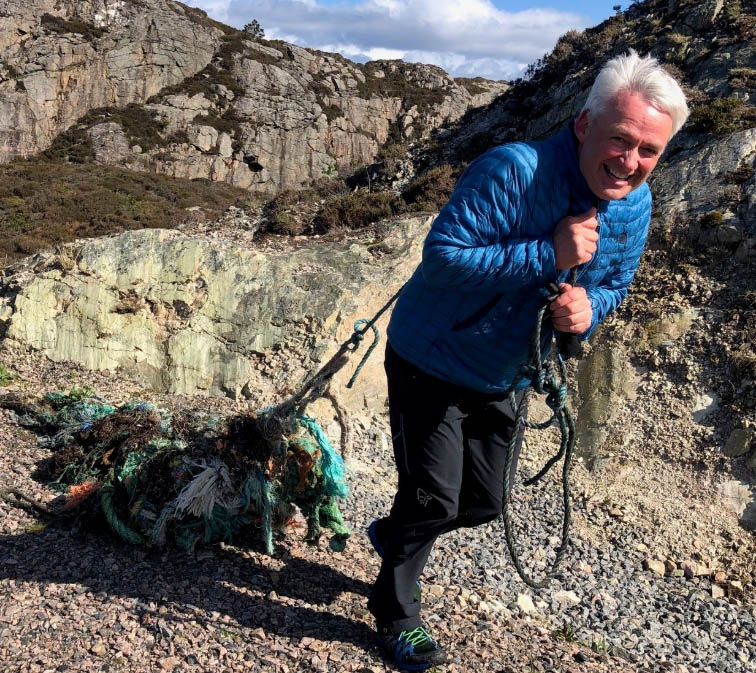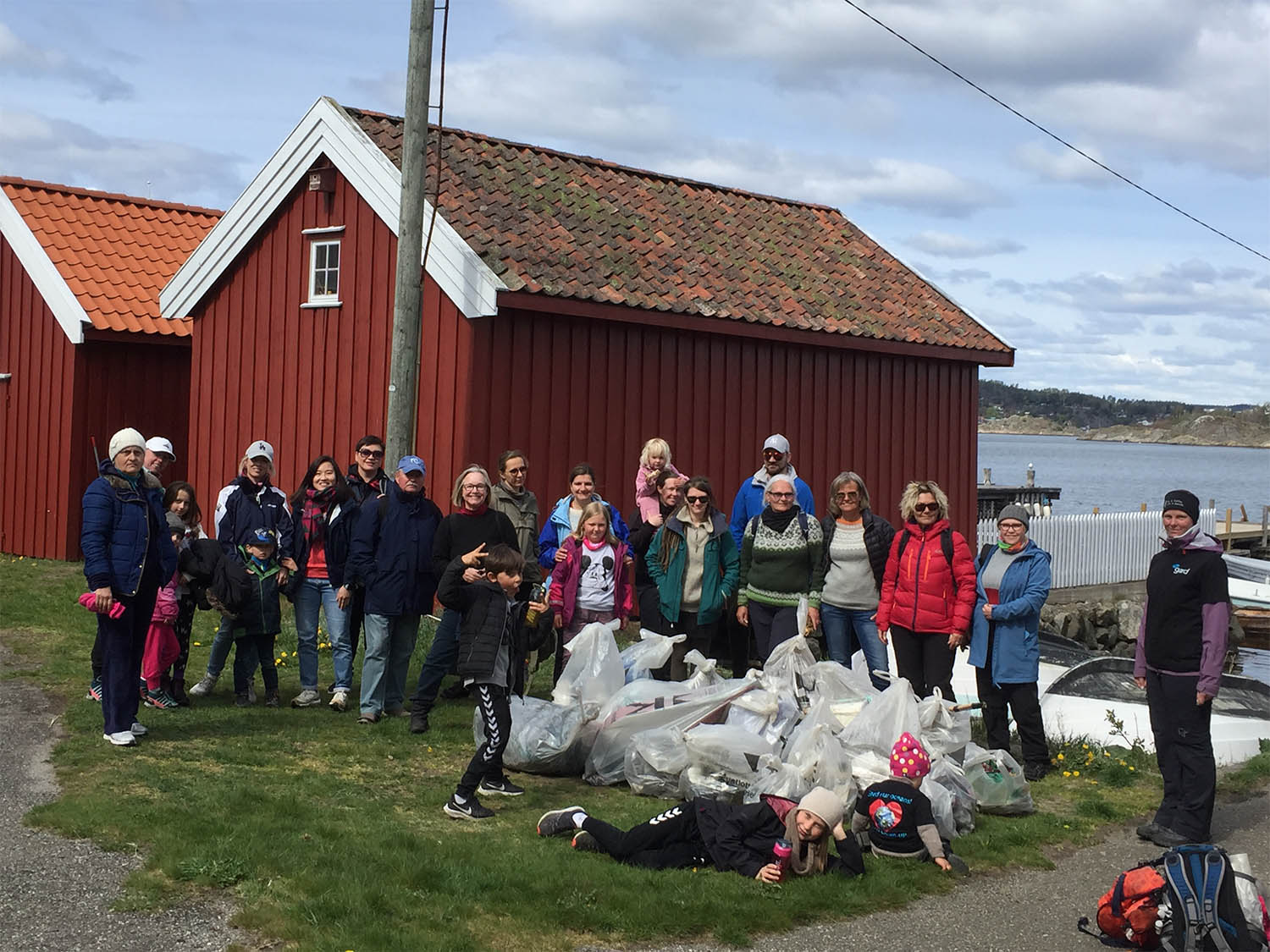A local approach to the global problem of plastic in the ocean - Norwegians join together to clean marine litter from Norway’s shoreline.

Think global, act local
Published 08 May 2019
Marine litter is waste created by humans that has found its way into the coastal or marine environment. Between 50-90 per cent – sometimes as much as 100 per cent - of the litter that accumulates on the shorelines, the sea surface and the sea floor is made up of one or a combination of different plastic polymers. Most types of plastic are not biodegradable so discarded or lost plastic items accumulate over time on shorelines.
Lost or discarded plastic fishing nets have the doubly pernicious impact in continuing to entangle and kill sea creatures – so called “ghost fishing”. Abandoned crab and lobster traps also continue to kill as one trapped animal becomes the bait for the next.
Prevention is better than cure and Norway is a leader in recycling of plastic. For example, Norway has the world’s most successful bottle deposit and return scheme with 97 per cent of all plastic drinks bottles purchased in Norway returned for recycling.

There is, however, plenty of plastic and other waste to be found on Norway’s shoreline, islands and skerries. Norwegians have a tradition called “dugnad” which means getting together and tidying up. The national beach cleaning “dugnad” is twice yearly, in spring and in autumn organized by Hold Norge Rent – Keep Norway Clean. Gard employees have joined these national beach cleaning days since 2017.On 4 May Gard employees from Bergen and Arendal joined over 40,000 people in this year’s spring cleaning. Common Items we removed included styrofoam and plastic fishing gear and nets, rope, food wrapping, straws and cups, and myriad large and small unidentifiable pieces of degraded plastic. Gard also sponsored youth groups to add to the cleaning crews. More unusual items found included a single rubber boot, a tyre and a message in a bottle.
A high concentration of plastic litter is found on beaches due to items discarded there and other litter washed in on tides and storm surges, Litter is easier to find and remove from the shoreline before it enters or re-enters the sea. While volunteering to spend some hours with colleagues in the lovely Norwegian spring benefits the individual spirit, beach cleaning contributes to the welfare of marine animals and shore birds by decreasing the risk of entanglement and consumption of plastic as a mistaken food source.

Volunteering also embeds the Gard offices into their local communities by coordinating and working with other organizations with common goals. Gard’s head office in Arendal cooperates with GRID, Våre Strender and Hold Norge Rent in learning more about the problems of plastic in the ocean and working together toward solutions. We thank all our employees and their families that have joined the beach cleaning outings over the years as part of our employee driven “GARD Our Oceans!” initiative.


